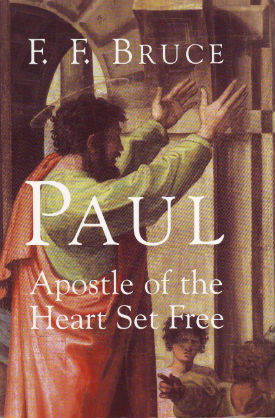Hebrews 12 – Where Eternity Beats the Super Bowl
By Neil Earle

One of the great things about the Biblical revelation is how fast it can cover great swaths of time and space. In Hebrews 12 St. Paul begins to wrap up his appeal to Jewish believers not to abandon the Christian life. In verse 1 he employs one of his favorite word pictures – winning a race with an immense crowd of witnesses looking on.
The Living Bible makes it real: “Since we have such a huge crowd of men of faith watching us from the grandstands, let us strip off anything that holds us back…” This is the Olympic analogy – one close to our hearts with the Super Bowl looming.
“Strain to the Finish”
Many scholars see Hebrews 12 as written against the backdrop of Jerusalem in the 60s AD, a religio-politico hothouse where tensions with the hated Romans were about to spill over into the disastrous Jewish revolt of 66-73 AD. Already, in year 62, during a change in Roman governorships, the priestly class sneakily used the occasion to execute James, church leader in Jerusalem, by throwing him from the pillar of the temple.
These were serious times for the young church. In the face of this gathering storm, Paul sets forth in Hebrews 12 his consistent theme – the supremacy and superiority of Jesus as the “Author and Finisher” of the Christian faith superior to all faiths, a bold claim for the time.
“Led to Repentance”
We sometimes think we seek out God by ourselves and engineered our own repentance. But this is the opposite of the way things actually work, though it is a normal oversight given our limited human viewpoint on salvation. The key to our conversion is what Paul references in verse 15, “the grace of God.” That grace going before us and enwrapping us brings us to the Father as wandering children now restored to full relationship with him, like the young brother we call the Prodigal (or Profligate) Son. It may look like we ourselves are taking the lead but it is in actual fact “the goodness of God leading us to repentance.” God’s grace – mediated through Jesus and the Holy Spirit – gets us going and keeps us going till the end of our journey once we commit to endure.
Like those rugged Super Bowl athletes we have to persevere. The “race” in Hebrews 12:1 is “agon” in the Greek showing the striving required. But we also need a reason for enduring, a reward, a vision. Perhaps we preachers need to talk more about the reward for persevering, even agonizing through our struggles, and that reward is truly out of this world. It brings to bear matters relating to eternity, matters that force reflection about the shadowy (at least to us) heavenly realms.

The Riveting Contrast
In Hebrews 12:18-24 Paul revisits the whole theme of the Hebrews Letter, the stark contrast between the Old Covenant revelation with its scary and intimidating scene before the giving of the Law at Mt. Sinai with thunder and fire set against the incomparable glories of heavenly Jerusalem, to which Paul has already alluded (Hebrews 11:16).
Now he paints a picture of what the Christian can expect as he passes from this earthly state, and describes it with several irresistible word pictures:
1. We have come to Mt. Zion above, the city of the living God, the heavenly Jerusalem. Other Bible writers have alluded to this. John in Revelation shows that our future is to dwell in a city, “the perfect abode of the people of God” (Guthrie). This entails a life of relationships, of connections and accomplishments that begin in the here and now in terms of “brotherly love.” Mt. Zion (meaning “high eminence”) was King David’s original city and it is here symbolic of what follows – the heavenly Jerusalem, what Revelation 21 calls the New Jerusalem. Jerusalem of old had two peaks, Mt. Zion and the temple mount. The great theologian John Owen (1616-1683) taught that the two elevations symbolized Jesus in his dual role as priest (the temple) and king (on Mount Zion). Now Paul compresses both to emphasize how “God was pleased to reconcile to himself all things” in Christ (Ephesians 1:10). This means earth and heaven, angels and humans, mortals and immortals, and most especially those who have already passed on to their resting place (Colossians 1:19-20).
2. We have come to innumerable angels, a verse which confirms that God is not a Monad, living in the kind of splendid isolation to which some religions would consign Him. No, says Leon Morris, this heavenly city “is no static affair; it is the city of a vital living dynamic Being who is doing things.” The NIV translation says “angels in joyful assembly” – in other words there is a celebration going on. It is the endless worship service Revelation describes led by mighty, intelligent awe-striking in appearance angels who do not cease day nor night singing “Holy, Holy, Holy, Lord God Almighty” (Revelation 4:8). A whole civilization of angels submitting to and honoring the Author of All Things – and we are invited to attend.
3. We also draw near to the church of the firstborn, whose names are written in heaven. Jesus confirmed that our names were written in heaven (Luke 10:20). John Owen wrote of believers who pass into that glorious state saying “by their adoption they are entitled to all that God has provided, that Christ has purchased, including his whole inheritance of grace and glory…fellow heirs with Christ, heirs of God” (Owen, Hebrews, page 254). Considering God controls and owns the entire universe, that is a stunning inheritance!

4. We meet God the Judge of all. As Owen said: “This may not seem to be a privilege, for everyone has to appear before God’s judgment seat. But it is one thing to be brought before a judge to be tried and sentenced as a criminal, and another thing to have favorable access to him whenever you wish. This is the access that is intended here.” Well put! God the Judge is more like the smiling, beneficent presiding magistrate on Jimmy Stewart’s side we see at the end of the movie “Mr. Smith Goes to Washington.” No one is kinder, more beneficent, more on our side than our personal Creator. “For it is he who has made us, and not we ourselves.”
5. Next we meet or reengage with “the spirits of just men made perfect.” As Morris says, “they have become just because of what Christ has done for them.” Perfection in the New Testament usually refers to a mature state, an individual or entity fulfilling the purpose for which they were designed. For example, Hebrews 5:8-9 shows that Jesus became perfect through obedience and suffering. He had never sinned, of course, but he had to complete the Course the Father had laid out before him (the sports analogy again). As the God-man He thus became our Mediator, which is Paul’s very next thought – “the Mediator of a new covenant.”
Again, who are these spirits? These spirits are the righteous ones in the heavenly places as brilliantly described by John Owen: “These sprits are the souls of people who have departed. Spirits are that essential part of our nature that subsists in a separate state from the body.”
Isn’t that a great definition, one that gives us hope, a life-giving hope both for us and those who have gone before?
Remember, the New Testament tends to use “soul” and “spirit” interchangeably. Thus Mary exclaims to the angel at the announcement of her pregnancy, “My soul glorifies the Lord and my spirit rejoices in God my savior” (Luke 1:47). We have the thirst for eternity inside of us through our human spirit which presses us for something beyond this earthly realm (Ecclesiastes 3:11). Our yearning is for something beyond this mundane world, a yearning for heaven, however our human nature disguises it. Not only disguises it but sends us off on too many wild goose chases for things that can’t fill that void. But one day we will achieve it. We will fight through the waters of death to the Rest promised the martyred saints in Revelation 6. There they are given white robes as symbolic of their graduation to eternal life even as their real reward comes at the end of it all, at the resurrection of the just when the spirit and the body are united once again when the Lord returns from heaven (John 5:25). Dazzling stuff, almost unheard today but the great princes of the Church have known this and taught it.
6. The Mediator we come to is of course our older brother Jesus Christ (Hebrews 2:11). It is by being joined to Jesus in this life that our dearly departed have achieved perfection in the heavenly places (1 Corinthians 6:17; Ephesians 2:21). Hs blood is superior even to that of righteous Abel. Abel’s called out for vengeance but Jesus’ blood cries out for mercy and forgiveness. Says Donald Guthrie: “The blood speaks of deeper things than itself because it proclaims a new way of access to God.”
All through this wonderful book of Hebrews, Paul has been showing how the blood of bulls and calves – even that sprinkled on the mercy seat inside the tabernacle – could not truly justify or cancel out our sins. Jesus’ blood sacrifice can and does. By his stripes we are healed and through his intercession for us on the cross and every day as our eternal High Priest we are on the road towards living forever, to be taken to the heavenly places, to await what God has for us there (Ephesians 2:8).
The great saints of the church knew this and were convinced of it and some died bloody deaths to seal their testimony, a testimony handed on to us in Scripture. Many have that confidence today. Are you one of them? If so, you have something to live for, something even greater than the Super Bowl.
(NKJV cited except where otherwise noted.)